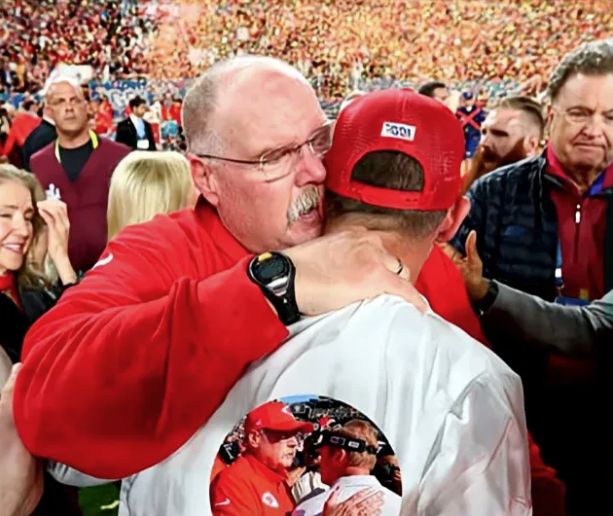
For over twenty years, Mark Peterson held onto the same seats. Kansas City Chiefs season tickets—his ritual, his tradition, his way of marking time. Every fall brought the same thrill: game days at Arrowhead Stadium, the roar of the crowd, the sea of red and gold. For two decades, those tickets represented constancy in a world that kept changing.
And then his body betrayed him.
The diagnosis came with words like urgent and life-threatening, the kind that rearrange your priorities in an instant. Treatment wasn’t optional. Neither was the cost. Medical bills piled up faster than he could count, each one a reminder that staying alive sometimes means giving up the things that made life feel worth living.
Mark made the decision quietly. He listed the season tickets for sale—the same seats he’d occupied for twenty years, the same view of the field where he’d watched victories and heartbreaks unfold. It felt like selling a piece of himself. But what choice did he have? You can’t cheer for your team if you’re not here anymore.
He thought that was the end of the story. A painful but necessary sacrifice. The kind of trade-off people make every day when the system fails them and survival becomes a transaction.
But someone at the Kansas City Chiefs heard about Mark’s situation. And they decided that wasn’t how this story should end.
The organization acted quietly, without fanfare or press releases. They paid off all of Mark’s medical bills—every last one. And then they did something even more remarkable: they gave him lifetime season tickets. Not for a year. Not as a promotional gesture. For life.
When Mark found out, he broke down. Not the polite tears you dab away with a tissue, but the kind that come from somewhere deep—relief and disbelief and gratitude all mixed together. He couldn’t believe it. Didn’t think he deserved it. Couldn’t wrap his mind around the fact that the team he’d loved for so long had chosen to love him back in the most tangible way possible.
The photo captured the moment: Mark in the stands, surrounded by thousands of fans in Chiefs red, embracing someone from the organization, his face a portrait of emotion. Around them, the Kingdom roared. But for Mark, the noise faded into something quieter—the realization that he mattered. That his loyalty had been seen. That he wasn’t alone.
This isn’t just a story about a sports team doing something generous. It’s about what legacy really means. The Chiefs could have let Mark’s tickets go to someone else, filled those seats with new fans, moved on. But they understood something deeper: a team’s true strength isn’t measured only in championships. It’s measured in how they treat the people who stand by them, even when those people are struggling.
In Kansas City, the Kingdom takes care of its own. And on the day Mark learned his medical bills were gone and his seat at Arrowhead was secure for life, he learned something too—that sometimes the loyalty you give comes back to you in ways you never imagined.
He thought his game days were over. But they were only just beginning.